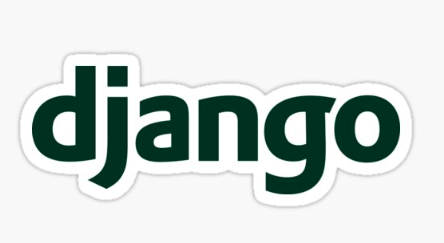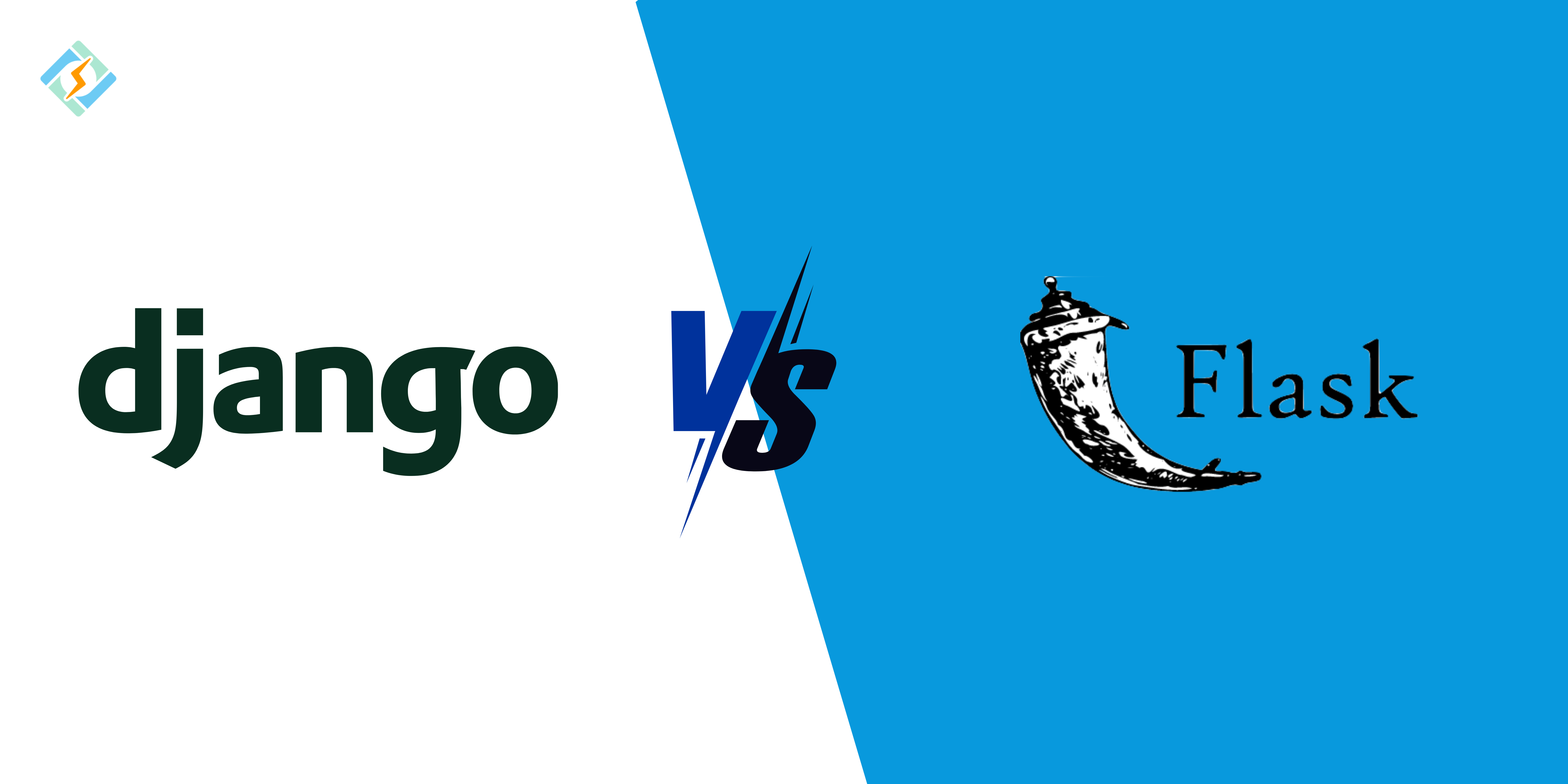If you are struggling to find the right framework for your next web development project, this guide is for you! Django vs Flask are the most popular frameworks for web applications and for Python developers today.
Frameworks made with Python include Django and Flask. Each has unique features that fit different project needs. So, how do you choose between them? The choice depends on several factors, like the kind of project and how complex it is.
Today we explore Django vs Flask differences, advantages, and use cases to help you make the right decision.
What is Django? ( Overview)

Django is a high-level, full-stack framework for Python that comes fully loaded.
It comes with many features already included, such as authentication, an admin panel, and an ORM. Django was created in 2003 by web developers Adrian Holovaty and Simon Willison. It originated when they began building web applications using Python and was made publicly available two years later. Django has a:
- Built-in ORM: Simplifies database tasks
- Scalability: Works well for large applications
- Security: Provides strong defense against threats like CSRF and SQL Injection
- Admin Panel: Automatically created for easy backend management.
Django vs Flask is a free programming framework that offers enhanced features and better performance. Developers like using Django because it enables them to perform standard tasks with little interference from systems, protocols, and management.
Get exclusive access to all things tech-savvy, and be the first to receive
the latest updates directly in your inbox.
It is often called a “framework for perfectionists with deadlines” because it encourages fast development and a clean, practical design. The framework’s quick development approach is all about delivering high-quality results efficiently. Django vs Flask quickly manages site maps, content organization, client data, and other essential development tasks. Its main goal is to finish applications as quickly as possible.
What is Flask? ( Overview)

Flask is a lightweight framework that doesn’t need any extra libraries to work its magic. It was created back in 2011 by Armin Ronacher, who designed it while working on a project that merged Werkzeug (a server framework) with Jinja2 (a template engine). This was essentially a test to see how these two solutions could work together.
Flask is packed with all the tools, tech, and libraries you need for building web apps. It provides features like form validation and various extensions for things like object-relational mapping, open authentication, and file uploads.
It was meant to be a trial run in a zip file that ultimately comes from the positive impact of Flask.
Flask is known as a micro-framework because it doesn’t depend on external libraries for its core functions.
Flask vs Django is packed with a variety of tools, technologies, and libraries that are essential for building web applications. It provides features like form validation and various extensions for things like object-relational mapping, open authentication, file uploads, and more.
Some big names that use Flask include Samsung, Netflix, Lyft, Reddit, and Zillow.
Django vs Flask: Key Differences Table
The key differences of Python backend Django vs Flask frameworks at a glance:
| Feature | Django | Flask |
| Framework Type | Full-stack framework (includes built-in features) | Micro-framework (lightweight, minimal setup) |
| Flexibility | Less flexible but offers many built-in tools | Very flexible, allows for customization |
| Project Structure | Follows a specific, organized project structure | Simple, user-defined structure |
| Development Speed | Faster for large projects with built-in solutions | Slower for larger projects due to less automation |
| Built-in Features | Includes built-in features like ORM, admin panel, and authentication | Minimal, needs third-party libraries |
| Scalability | High scalability with built-in tools for large projects | Needs more manual effort for scalability |
| ORM Support | Built-in ORM (Django ORM) | Optional (Flask-SQLAlchemy for database support) |
| Template Engine | Django Template Language | Jinja2 |
| Security | Includes built-in security features like CSRF protection and user authentication | Requires manual setup for many security features |
| URL Routing | Automatic URL routing with pre-defined patterns | Manual, more customizable |
| Performance | More suitable for building larger projects rapidly and effortlessly. | it is lightweight and simpler, allowing it to build projects in a shorter time and with less coding. |
| Use Case | Ideal for large, complex applications | Ideal for small to medium web applications |
1. Scalability and Performance
Flask
Delivers great performance and scalability for small to medium applications. Its minimalist approach allows developers to enhance performance by choosing only the essential components and dependencies.
Flask apps are often built locally with the Werkzeug WSGI server, but when they go live, they usually use a WSGI server like Gunicorn or uWSGI, along with a strong server like Nginx to handle public requests.

Django
Django vs Flask is built for scalability and performance, making it ideal for high-traffic and enterprise applications. It includes built-in tools for caching, database optimization, and asynchronous processing to boost performance and scalability.
Django employs load balancing and clustering to operate the app on multiple servers. This means you can expand your web app without compromising performance or loading speeds.
If you need to create a web application that can scale significantly, Django could be the ideal option.
2. Community Support and Ecosystem
Flask
Flask vs Django has a smaller but engaged and active community, offering various third-party extensions and plugins for added features. Developers often depend on community resources and documentation for help.
Django
Django vs Flask has a large and active community since it’s been around for more than 5 years more than Flask, complete with thorough documentation, official tutorials, and lively forums for support. It provides a rich ecosystem of reusable components, plugins, and libraries, which simplifies development and lessens the need for outside resources.
3. Flask vs Django: Security?
Flask
Flask vs Django includes some basic security features, such as CSRF protection. However, you can enhance security by using various available extensions.
While Flask requires less coding than Django, making it somewhat safer from cyber threats, it still depends on third-party extensions. This means the security of an application relies on the weakest plugin.
As a result, your development team has a greater responsibility to maintain security by regularly evaluating and monitoring third-party libraries and extensions.
Django
Django vs Flask has a big codebase, which can attract more harmful activities. However, it is very secure by default and comes with many built-in security features like scripts, user password hashing, CSRF tokens, and modules for authentication and authorization.
These features help developers avoid common security errors and let them check security measures before launching their applications. Additionally, the Django development team quickly and actively addresses any security issues they find.
As a result, securing Django vs Flask is simpler at the start and easier to manage over the lifespan of your application.
4. Admin Interface
Django
The admin interface is a key feature that makes Django a powerful web framework. Unlike Flask, Django comes with a built-in admin system that allows users to perform various management tasks easily. It automatically generates admin modules based on the project. Developers can also customize the admin interface to fit specific business requirements.
Flask
Flask vs Django does not include a built-in admin panel, which is a web app for managing data according to your models. However, there is an extension named Flask-Admin that provides this feature and additional capabilities.
5. Learning Curve and Skill Level
Flask
Easy to learn, making it great for beginners and those with basic Python skills. It’s ideal for people who want to start with a simple framework and slowly dive into more complex ideas.
Django
Has a tougher learning curve because of its extensive features and rules. It’s best for developers with intermediate to advanced Python knowledge or those looking for a more organized way to build websites.
Django’s widespread adoption has resulted in a large pool of skilled developers. Django programmers are often preferred for projects that require a more structured framework, as they are familiar with the built-in features that Django provides. This makes it easier to find developers with the expertise needed for scalable and secure applications.
6. Django vs Flask: Database Compared
Django
Django vs Flask enhances its ORM framework. One of the perks of using this ORM is that developers can easily work with various databases like PostgreSQL, SQLite, Oracle, MySQL, and others. They don’t need to write lengthy SQL queries for standard database tasks.
Flask
On the flip side, Python Flask vs Django doesn’t come with ORM support, so developers have to use SQLAlchemy, which is a SQL toolkit and Object Relational Mapper for Python, to handle those everyday database operations.
Django vs Flask: Use Cases Comparison!
It’s important to understand the use cases of Python Flask vs Django frameworks. Let’s see when to use each:
When To Choose Python Django vs Flask?
- Perfect for projects that need security and quick development.
- Ideal for large-scale or data-intensive tasks.
- Ideal for large-scale, intricate tasks that call for integrated tools.
- Ideal for feature-rich application development or projects with short turnaround times.
- Perfect for applications that require long-term growth or that handle sensitive data.
When to Choose Python Flask vs Django
- Perfect for tasks that call for simplicity and speed.
- Ideal for lightweight APIs or tiny applications.
- Perfect for custom development when you need the most control over the components and architecture.
- Streamlines quick testing and prototyping.
Django vs Flask for Python Backend Development
Backend Development Features
- Django comes with ready-to-use tools such as ORM and templates. Flask relies on third-party libraries, giving it more flexibility.
- Database Integration and ORM
- Django’s built-in ORM simplifies database management. Many Flask developers prefer using SQLAlchemy or similar libraries.
- API Development Capabilities
- Both frameworks are great for building APIs, but Flask’s straightforwardness makes it popular for lightweight REST APIs.
Which Python Framework Should You Choose?
Both Django vs Flask Python frameworks are excellent for web development projects and even expert developers find it hard to choose between them.
The crux of this guide will be that the choice entirely depends on your project’s specific needs. Both offer amazing features but you can for Django for complex, large-scale apps (social media apps), while Flask vs Django is beginner-friendly, best for flexibility and simplicity., lightweight APIS or even experimental Projects.
Hosting with CyberPanel
Easily host your Django or Flask applications with one-click setups, strong security, and features that enhance performance on CyberPanel.
Both frameworks are powerful tools in Python, and your choice depends on the size and complexity of your project.
Frequently Asked Questions: Django vs Flask
1. Can Django vs Flask be used together?
Yes, they can be combined for different sections of your project based on your requirements.
2. Is Django faster than Flask?
Flask vs Django is generally quicker for simple applications, while Django is better for more complex systems.
3. Which framework is better for beginners?
Flask vs Django is easier to start with, but Django offers more structure for new developers.
4. Why is Flask lighter than Django?
Flask vs Python Django has no built-in tools, leading to less overhead and complexity.
5. Are Django and Flask good for enterprise projects?
Python Django vs Flask is more suitable for large enterprise applications, while Flask can manage smaller, modular enterprise solutions.



